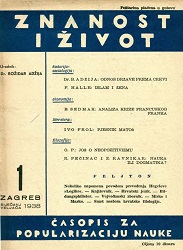
We kindly inform you that, as long as the subject affiliation of our 300.000+ articles is in progress, you might get unsufficient or no results on your third level or second level search. In this case, please broaden your search criteria.

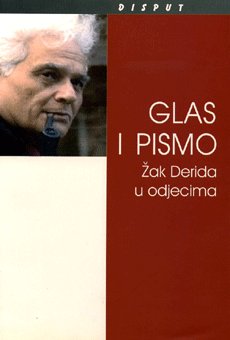
Mančić takes the translation of a fragment of La vérité en peinture by Jacques Derrida, as translated by Julio Cortázar in his short story “A Diary on A Short Story”, and examines its effects. In this sense, she tests the possibility or impossibility of drawing a general distinction between “original” and “translation” when the translated text becomes a part of a new original. May a fact that the original asks to be annuled as original and to find itself on the place of a translation be called suicide? Or a translating process is the one commiting suicide by obtaining such a result? Could it, even, be called a suicide, or what we are dealing with here is an other survival?
More...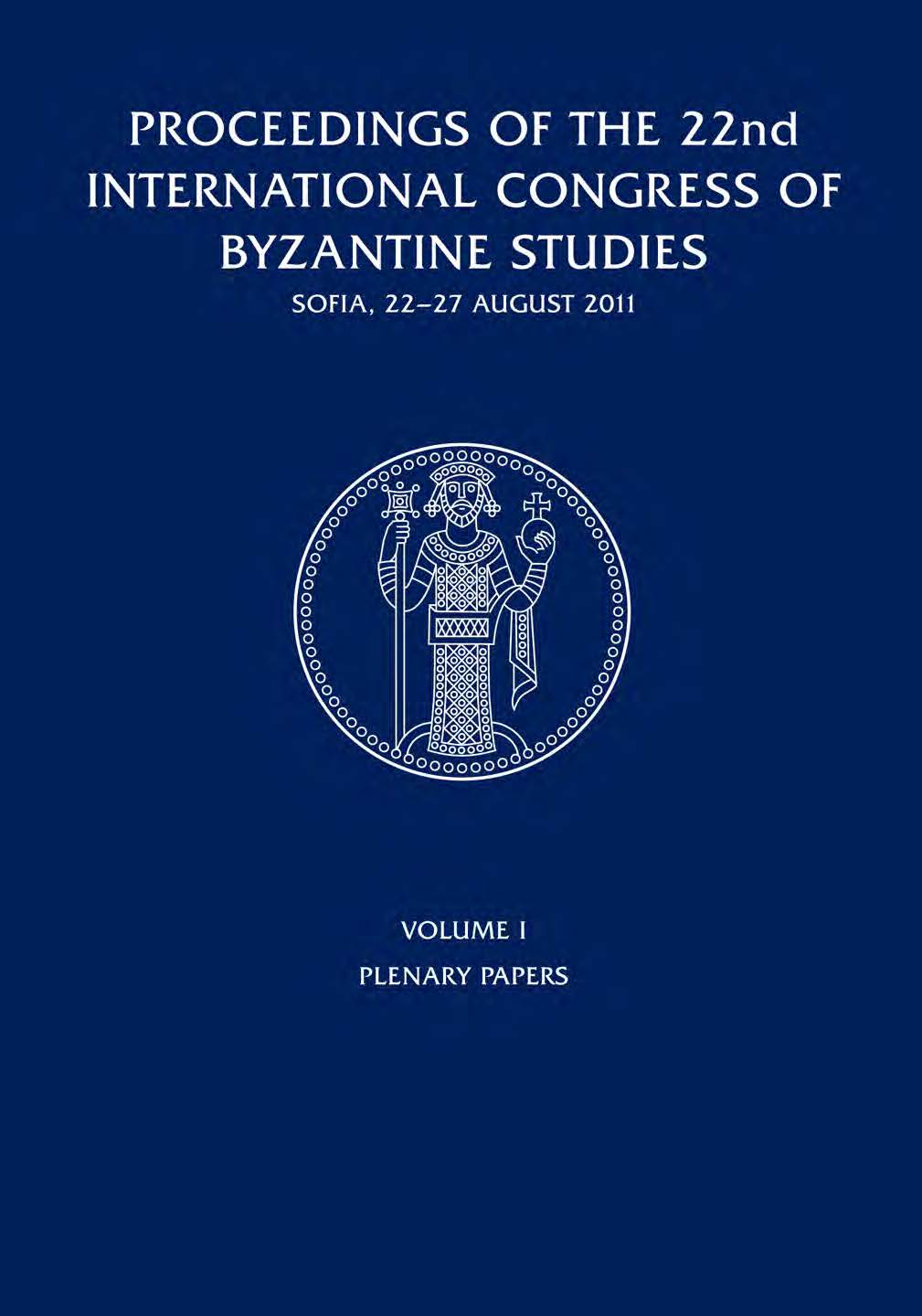
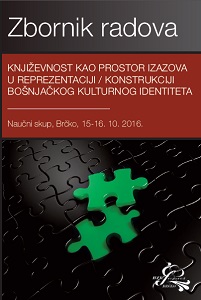
This paper analyzes the unpublished overview of Bosniak literature written by Enver Čolaković. Written during the time of the Independent State of Croatia (NDH) within the project entitled “Croatian Muslim Monographs”, this study, content wise, had to adhere to the rigid national-ideological framework of the cultural policy of that time. However, the author, insisting on his Bogomil roots, Bosnianhood and Bosnian identity of the Bosniak literature managed to achieve, to the extent it was possible, a counterbalance to the nominal Croatianhood and the officially promoted “Croatian-Muslim literary canon”. The quality of his work can be seen in the fact that Čolaković wrote not only literary-historical overview of the Bosniak literature, but also provided its general periodization, and established, according to his personal ideas and literary-esthetic predilection, anthological-chrestomathic order of writers and works of Bosniak literature.
More...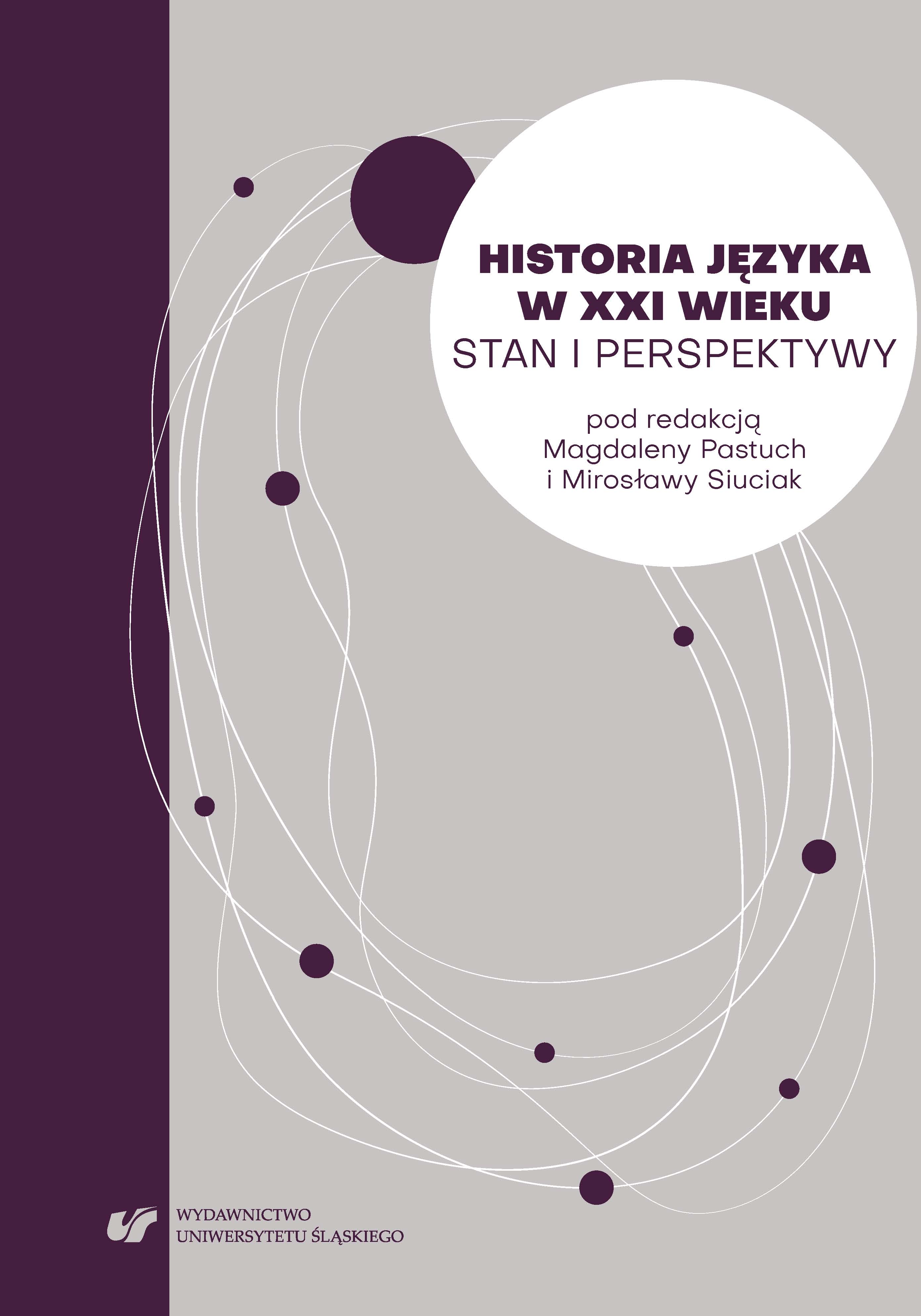
The article presents perspectives adopted in research related to linguistics studies dedicated to Polish old catholic sermons, mainly preached in 19th century. First part of this paper presents characteristics of newer linguistic research carried on basis of sermons in 19th century in comparison to sermons preached prior to this period. In second part the author discusses the perspective of research that she have adopted during own research on sermons created and published in second half of 19th century. The author considers as the most crucial reference the concept of historical and linguistic, also communicative idea developed by Stanisław Borowski that has been associated with category of communicative community as well as its bonding and shaping communicative processes. Equally important to author’s research is generic perspective, which allows to describe meaning and function of religious statement genre, such as sermon, in order to realize communicative needs of religious communicative community. Direction of research within this area is based mainly on the concept of genres created by Maria Wojtak and Bożena Witosz, especially assumptions of historical genology. Another point of view, allowing to discover interesting possibilities of analysis, brings consideration of historical, cultural and social realities that accompanied creating and functioning of preaching texts. Last part presents sample lingual analysis of hell’s image, in which it is including delineated research perspectives. The paper discusses assortment criterion in analyzing preaching texts that are believed to guarantee representativeness of research material.
More...
The aim of this article is to identify the literature on political communication in Poland by the year 1795. The result of research on the legal notion variety of political communication are devoted to the development of lexis codes and statutes, the semantics of selected terms of political and constitutions and statutes. Linguists study the history and origins of the rhetorical style, the language of individual orators and the effectiveness of speech or politeness language.
More...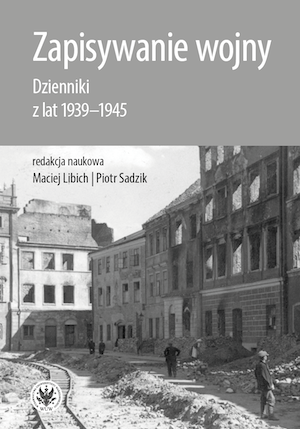
The author focuses on the Second World War, but draws attention to the deep genealogy of the phrase “wartime diaries”, treating them as a special form of recording limit situations in which a person is confronted with violence and death, which go beyond the ways of coping with these experiences, and the community is faced with the horror of mass extermination. Culture and civilization are in a state of catastrophe, destruction and collapse. Examples of records of such experiences in the past include plague logs and pogrom chronicles. The concept of “wartime diaries” has two basic features: 1. they are written in borderline situations and contain a record of borderline experiences; 2. the primary distinguishing criterion is the proximity of the record and the experience. The author presents the topography of diaristic records and the circles of experience they testify to. As for the topography of writing, the observation field was narrowed only to the area of the Warsaw, Łódź, Kraków, Vilnius and Kaunas ghettos. From the various experiences within the thematic spectrum of the diaries, the author presents two: the hunger in the ghetto and the siege of the city of Warsaw and Leningrad. The article proposes to expand the genological area of the diaries and draw attention to diaristic borderlands and genological hybrids. This broadened spectrum of forms would fit between the diary and the chronicle, and between the letters and the diary. There are also “texts in extremis”, which can be considered a unique“ ultimate diaristic record”. This separate group consists of various types of inscriptions on the walls of torture rooms and prisons, places where convicts are held. The act of writing and the moment of experience merge.
More...
In this article the author describes the change in the status of wartime and Holocaust diaries which has taken place in Poland in the last fifty years. He distinguishes four main phases of the perception of war diaries: from document, through testimony, writing practice, to literature. They are chronological and typological in character, for although their temporal dynamics is clearly discernible, at the same time they repeatedly overlap, co-exist and even in a certain sense – compete with each other. In conclusion the author points out that the diaries included in the literary space (through the category of “personal document literature”) do not so much supplement or enrich this space, as “burst” it from within. War diaries seen as literature change our view of the literature itself and its place in the space of the Polish writing practices of the twentieth century.
More...
The notion of the aid to the Jews during the Holocaust that prevails in the Polish culture has been so detached from the historical truth that it requires intervention in the form of counter-history and the interconnected counter-memory. Access to real experiences from the occupation is provided by numerous testimonies written “there and then,” principally including diaries and memoirs. The recorded experiences of both the Poles and the Jews present unobvious and ambivalent aspects of the aid relations that continued despite the surrounding threats. The article is an attempt to confront the Polish discourse about the Righteous with the testimonies by Brandla Siekierkowa, Karol Rotgeber, Jerzy Feliks Urman, and Calek Perechodnik.
More...
The paper discusses "Dziennik wojenny" [War Diary] by Leopold Buczkowski. It poses a question concerning the origins of the text and the subsequent stages of its development. That is a challenging task since the original version of the work is not available. Additionally, the lack of the first version makes it difficult to examine the so-called material sphere of the diary. It can be reconstructed only based on the preserved manuscript version. The author of the paper also discussed "Dziennik wojenny" against the background of other early works by Buczkowski ("Wertepy", and "Czarny potok", a collection of a few dozen poems), from the perspective of editorial and philological problems. He also demonstrates the need for a new edition of "Dziennik wojenny", and indicated the errors committed in the existing edition.
More...
The article is an attempt to describe the wartime diaries of Anna Pogonowska. Drawing on literary anthropology, genetic criticism and the works of Paweł Rodak, the author of the article describes both the materiality of Pogonowska’s notes, the themes they present, and their pragmatic functions. The author describes the state of anomie and the disintegration of the world in times of war as depicted in the diaries, as well as the feelings of isolation and boredom experienced by the young diarist. Moreover, the author of the article foregrounds the diarist’s discrete allusions to the Holocaust and reflects on her social position during the war.
More...
Written in four languages in the margins of a French book, the diary of Abram Icchak Łaski remained anonymous for many years, although it aroused a keen interest in Holocaust scholars both in terms of its form and content. Only recent research has allowed to discover the author’s name. The article presents new possibilities of text interpretation, which appear along with getting to know the identity of the diarist and his milieu.
More...
This article analyzes the wartime fate of two archival and library collections and two archivists/librarians who took care of these collections during the hostilities in two cities – Lviv and Warsaw. The analysis was based on diaristic documents: Aleksander Czołowski’s "Dziennik wypadków listopadowych" [Diary of November Events] and Józef Grycz’s "Dzienniczek z okresu powstania warszawskiego 1944 roku" [Diary of the 1944 Warsaw Uprising]. The first diary describes the events that took place in Lviv during the Polish-Ukrainian war in 1918, especially Czołowski’s efforts to take care of the city’s archival collection. The second diary highlights the Warsaw Uprising struggles in 1944 and, above all, Grycz’s personal struggle to protect the collections of the National Library from destruction or robbery. Both diaries are interestingly profiled documents of their time. They present the battles of Lviv and Warsaw, respectively, from an unusual perspective: that of the institutions of science and culture, as well as the documents and books collected in those institutions, whose material dimension suddenly became fundamental (because fundamentally endangered). In this way, both diaries make us aware that wars, especially those fought in urban areas, are both tragedies of people and hecatomb of things, including books. At certain points both diaries also shed untypical light on events integrated in the dominant Polish discourse and rarely narrated in a way that deviates from it.
More...
In my paper I focused on presenting some of the notes made by Wacław Borowy in 1943–1944 that are unknown to a wide audience. I look not only at the content of the scholar’s diary, but also at its physical aspect. By referring to the works of Paweł Rodak, Philippe Lejeune and various achievements of genetic criticism, I try to answer some of the key questions. Why does Borowy follow the actions of the Soviet troops? How does he perceive life in the occupied capital city? How does he hide his involvement in the works of the underground University of Warsaw? Another field of research are scholar’s notes that were made during the Warsaw Uprising. The laconic, “encrypted” (according to Maria Straszewska’s term) entries, which were predominant up to that time, are replaced with notes in which Borowy makes many detailed comments regarding the uprising. Thus the reader of this article will get to know a hidden face of Wacław Borowy. The man who tries to keep in his tiny notebooks the memories of the world in which, in his own words, “besides sins, there were so many great values!” A witness to history who reads subsequent decisions concerning the post-war fate of Poland with curiosity.
More...
This article is an attempt to provide an analysis of the diary kept by the poet Konstanty Ildefons Gałczyński during his imprisonment in Stalag-XI POW Camp in Altengrabow. Written in 1941, the diary remained unpublished until some 50 years after the author’s death. We will not find any of the poet’s stylistic methods in the entries. Religious themes dominate, as does the necessity to adapt personality traits. The diary throws light on the poet’s post-war works.
More...
In the article I conduct the analysis of Stefan Themerson’s wartime diaries. Notes from 1940–1942 are exemplified in seven volumes of manuscripts, currently held in the Themerson Archive in the National Library of Poland in Warsaw. I point out that the intimate practice of the avant-garde artist was an incidential activity. I assume there were not any further or previous traces of this kind of autobiographical writing. Combining the methods of life-writing studies and genetic criticism, I put forward a thesis that the diaries of Themerson are an interesting record of the formation process of Themerson anti-political statement.
More...
The subject of this chapter is the issue of the daily dating of poems written between 1939 and 1945. The key question concerns the significance of this particular practice. The notion of kairos proves useful in explaining it.
More...
This article is the result of a review of the writing materials of Krzysztof Kamil Baczyński to identify manuscripts with the characteristics and functions of a diary, and at the same time an introduction to genetic research on the poet’s codexes. The first part of the article contains a comparison of the manuscripts in the above mentioned key, leading to a presentation of the predominance of lyric autographs: numerous and related to the various functions they had, with a marginal share of non-literary texts, among which – if it ever existed – a diary could be found. Brief analyses of a letter from Stawisko from March 1942 and selected author’s footnotes from [Codex 39/42] demonstrate the secondary role of personal notes in relation to the lyric, which is the poet’s way of “noting” experiences and testimonies. The second part introduces the study of the codexes, analysing those elements of them that correspond in functionality to the elements of a diary. Particular attention is paid to the components and features of notebooks relating to the temporality of their creation considered in various aspects: dating, chronology, the period of the creation of notebooks, the mode and regularity of their keeping. [Codex 39/42] and [Codex 42/44] are framed as the result of a writing practice similar to diary-keeping with respect to their material integrity, which is an introduction to the study of the poet’s notebooks taking into account their material and pragmatic dimensions.
More...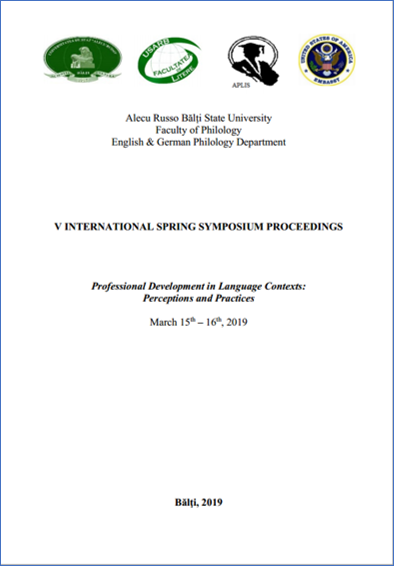
The article examines the role memory plays in the process of acquisition of French as a foreign language while using drama in the classroom. The suggested activities are designed to help learners improve and train their memory while working with the play Cocorico by Sylvaine Hinglais. The activities can be used with all learners regardless of their language proficiency level.
More...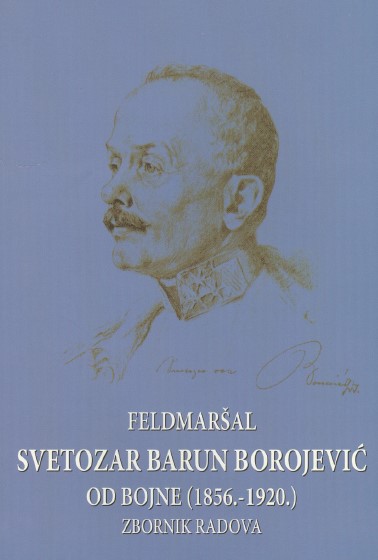
Setting forth from the assumption that encyclopaedia-production in any country reflects the time in which it emerges, the objective of this work is to explore any possible divergences in the treatment of the life and deeds of Borojević among the encyclopaedia entries of various nations. Stated differently, the objective of this research is to ascertain whether there were encyclopaedia entries that were influenced by or were in correlation with the origin of the national encyclopaedic source, with the specific encyclopaedia-production of a given nation. In this context, emphasis will be placed on an inter-lexicographic biographical comparison of national biographical lexicographic entries and an examination of any differences in interpretation in the approach to the material, which may have been caused by the heterogeneity of national lexicographic sources and approaches. The basic hypothesis lies in examining the assumption that the framework of national lexicography focuses on a specific vision, and the objective of this work is to detect these views as encapsulated in biographical lexicographic entries as research units during the period from the 1920s to the present. In methodological terms, the work presents an attempt to ascertain the approach and analysis in articles about Borojević and, in this sense, the focus is on a more factual description of encyclopaedia entries than an analytical and critical approach to their sources, without moving beyond the factual generalizations contained in the encyclopaedic entries. The overview of encyclopaedia entries is based on the assumption that encyclopaedia entries reflect the spirit of the time, and that the idea that lexicographical entries personify the spirit of the time within all limits of national/state or ideological provenance must be either confirmed or refuted.
More...